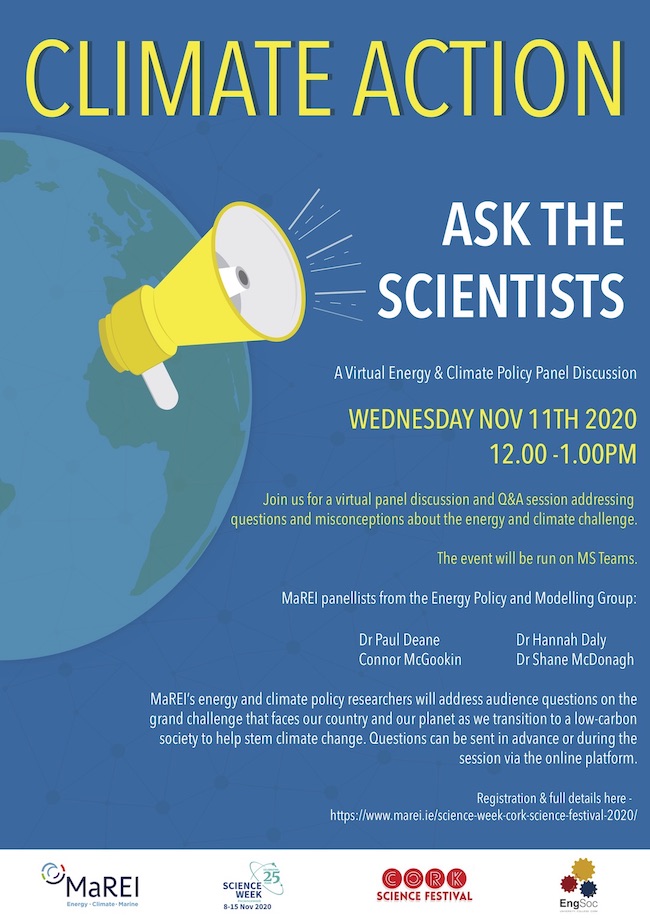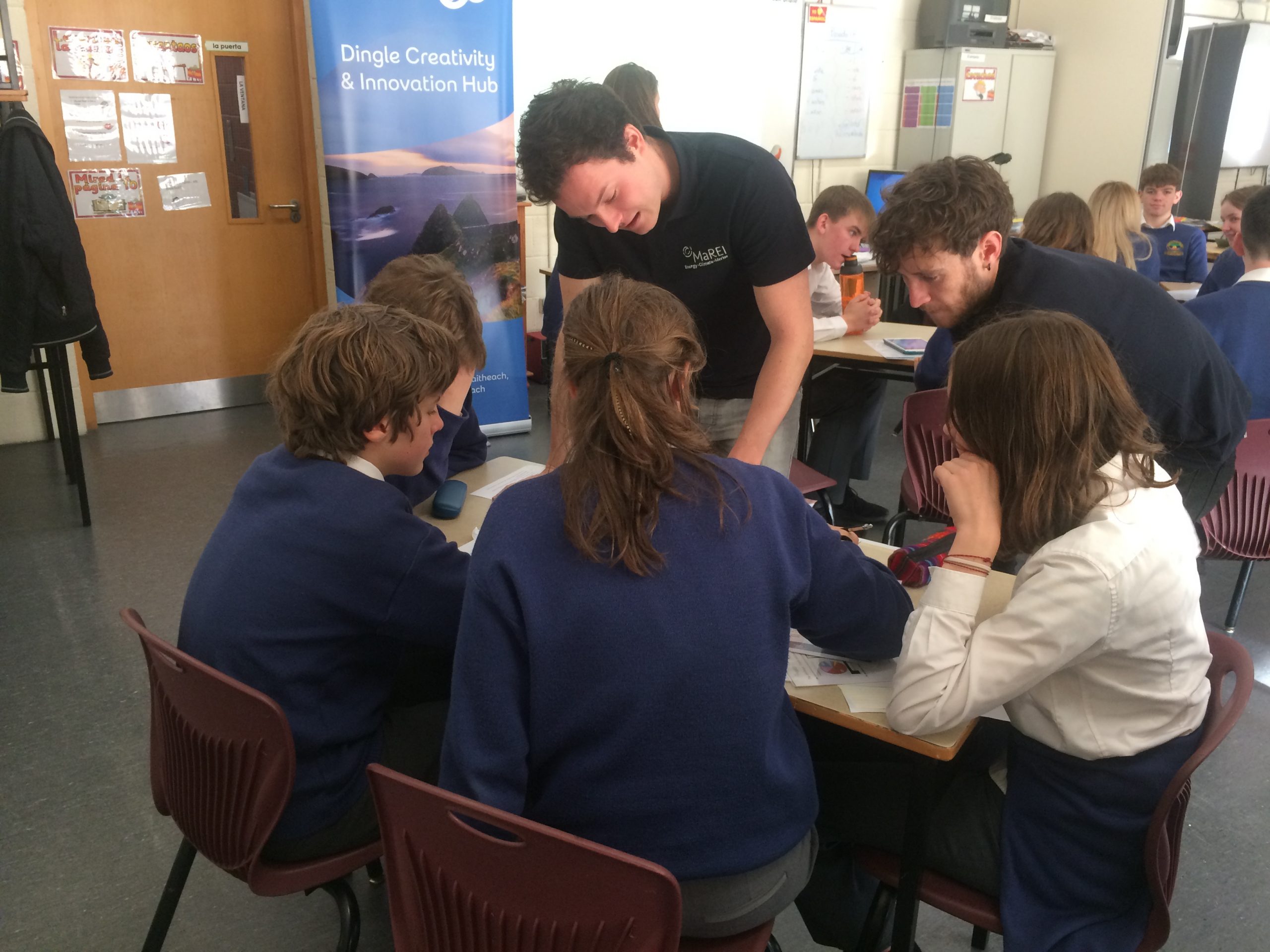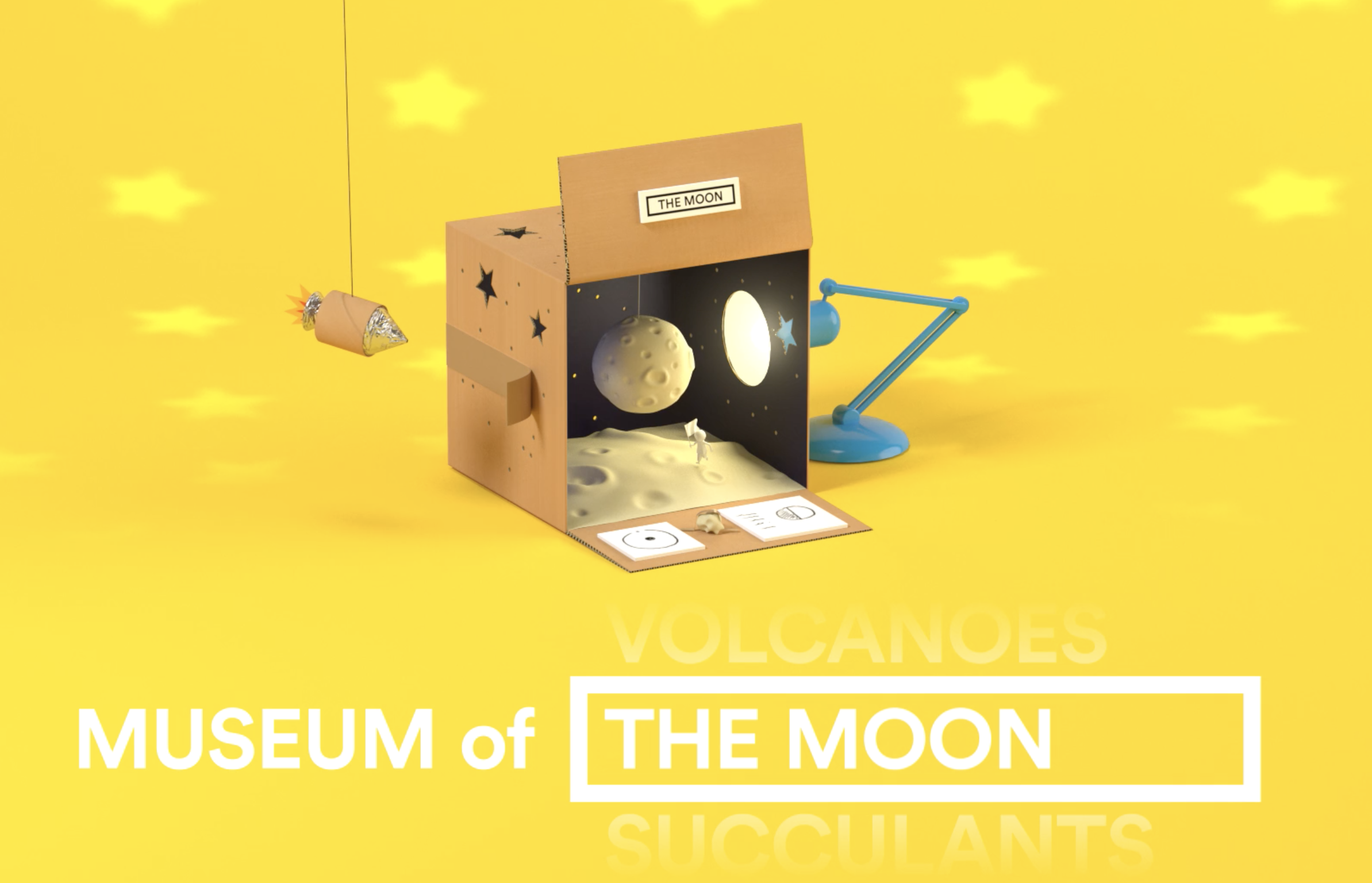
Science Week & Cork Science Festival 2020
Now in its 25th year, Science Week 2020 will take place from November 8th to 15th against a societal backdrop never previously experienced in our lifetime. Now, more than ever, we have turned to the information science provides to guide our decisions. The Science Week community have been busy transforming Science Week activities to brand new digital, virtual, and blended formats.
The core theme for Science Week 2020 is ‘Science Week – Choosing our Future’ focusing on how science can improve our lives in the future, and in the present. This will explore how science can help us to make positive choices that will impact the environment, our health, and our quality of life.
MaREI’s activities are listed below. You can find a full listing of all Science Week activities at https://www.sfi.ie/engagement/science-week/ and https://www.corksciencefestival.ie/.

Virtual event – Energy & Climate Policy Panel Discussion: Ask the Scientists
MaREI in collaboration with UCC Engineering Society will host a panel of energy and climate policy researchers to address audience questions and misconceptions about the energy and climate challenge.
Wed, November 11, 2020 12:00 PM – 1:00 PM GMT
MaREI’s energy and climate policy researchers will address audience questions on the grand challenge that faces our country and our planet as we transition to a low-carbon society to help stem climate change. Questions can be sent in advance via this Google form and you can also ask during the session via the online platform (a link will be sent following registration).
Registration & full details here.
Virtual Climate Hack
The Virtual Climate Hack provides secondary school students from the South West region with an opportunity to investigate the energy demand in their area and explore potential decarbonisation options (moving away from fossil fuels to reduce carbon emissions), in addition they will have the opportunity to ask experts about their proposed solutions.
The event will be run entirely online. Schools/students will be given material and will organise group work sessions themselves with the support of their teachers. Building on the Dingle Peninsula 2030 event that was held as part of Science Week 2019, see video here and summary report here.
Climate Hack event format
- About 1 hour prep with material the week before (Nov 2nd to 6th) to read through it, form groups and choose a topic. Schools/students to organise themselves.
- 1 – 2 hour initial group discussion, preferable on Monday Nov 9th, online via Google Meet / Teams / Zoom. Schools/students to organise themselves.
- Another 1 – 2 hour session for students to finalise posters and submit them to MaREI by Thursday evening. Schools/students to organise themselves.
- Friday midday we will announce winners (One4All vouchers for winning team)
For any questions on the material or event format please get in touch with ei.ccu@nikoogcm.ronnoc.

All material for the Climate Hack activities can be found below.
MaREI Climate Hack Poster Template
Co. Cork
MaREI Climate Hack – Cork – Science Week 2020
MaREI Climate Hack – Challenge 1 – Transport
MaREI Climate Hack – Challenge 2 – Residential Heating
MaREI Climate Hack – Challenge 3 – Renewable Energy
MaREI Climate Hack – Cork Supplementary Information
Co. Kerry
MaREI Climate Hack – Kerry – Science Week 2020
MaREI Climate Hack – Science Week 2020 – Gaeilge
MaREI Climate Hack – Challenge 1 – Transport
MaREI Climate Hack – Challenge 1 – Transport – Gaeilge
MaREI Climate Hack – Challenge 2 – Residential
MaREI Climate Hack -Challenge 2 – Residential – Gaeilge
MaREI Climate Hack – Challenge 3 – Renewable Energy
MaREI Climate Hack – Challenge 3 – Renewable Energy- Gaeilge
Climate Conversation Cards
*Created by MaREI researchers at NUI Galway, Clare Noone and Adriana Cardinot
These Climate Conversation Cards can be used to start a group discussion on climate change and actions that can be taken. They are designed to be accessible for children aged 10-16years but can also be used by older audiences! They can be grouped into both challenges and solutions (8 of each) which can be divided up and given to groups to discuss and feedback to the class.
Added activities include a climate quiz, posters, role plays, videos for other classes, or designing a survey or a class debate around the topics.
The Cards can be used in conjunction with the Green Schools resources on Climate Change.



